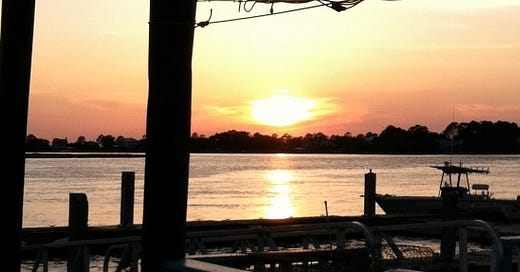In all the times I’ve been the Vicar of a parish, I've never had an American flag positioned someplace near the altar. I've been in plenty of Episcopal Church's where that was the case. I can't say that it bothered me very much. It was fairly normal. When I was a child we read 10 verses from the Bible every morning in the public school, it was Pennsylvania law. We all learned two things in that process. The first was to find the psalm that had just 10 verses and read that. The second was that we always chose from the Old Testament because that was the shared Bible with half the school being Christians and the other half Jewish. It would not have occurred to us to do something that would have been offensive to our Jewish classmates.
And I've been to Britain enough and seen the war monuments and flags in many churches. I have always found it moving and appropriate. On the other hand, I do remember being appalled when one summer I visited a church at the Jersey shore and they had a rather elaborate flag ceremony at the time of the offertory. Over-the-top I thought. I had a similar feeling when recently one of our bishops insisted that all flags near the altar had to be removed.
Today I came across this article on Substack, “No, They’re Not All Closeted Christian Nationalists.” I don't share all the same sensitivities and perspectives as the writers. But reading their article did pull me back to questions that have been rattling around in my mind as I prayed and reflected. They're starting point was the statistical reporting of Ryan Burge on religious voting patterns. When I first saw.Burge’s graph I was surprised that 40% of Episcopalians voted for Donald Trump in the last election. Today I looked more closely and realized that Episcopalian appeared to be becoming more Republican oriented overtime. In 2008 35% voted for the Republican candidate.
From “No, They’re Not All Closeted Christian Nationalists.” - “But here’s the thing: I just don’t believe we’re secretly harboring a bunch of closeted Christian Nationalists in our pews. I think that’s a mistaken—and frankly unhelpful—assumption. … That may be hard for some clergy to hear, especially if we imagine our congregations as ideological extensions of ourselves. But the truth is more complicated—and more human. People make voting decisions through a tangled mix of fear, habit, conviction, identity, and perceived self-interest. It’s not always about theology or ideology. And it’s certainly not always about Christian Nationalism. There’s also something of the “Law of the Hammer” going on here. Abraham Maslow once wrote: “I suppose it is tempting, if the only tool you have is a hammer, to treat everything as if it were a nail.” Many pastors, so deeply immersed in the fight against Christian Nationalism or right-wing extremism, have come to see every action or opinion through that lens.” [More on how narritives and mental models influence us - America has become vastly richer than Europe.
So, two things. First, there are many political narratives floating about in our culture at the moment. As always, Christians are called to not find ourselves, trapped in those narratives, but to base our politics on our faith not the other way around. And second, how is it that we are to be helped to do that, to based our politics on our faith?
V. Lord, keep this nation under your care;
R. And guide us in the way of justice and truth.
We depend on the Holy Spirit to guide us. The desire and struggle for a nation of justice and truth begins in our prayer life. Yes, we also need to read widely and reflect. And then to act upon an informed conscience. Still, it is in the weekly and daily rhythms of Eucharist and Daily Office where we are grounded in the heart and mind of Christ. Overtime it nurtures within us something of a Christian character — the pathways of humility, patience, forgiveness, self-control, common sense, and all such good virtues. It is in our prayer life that we may be guided away from the traps of the favorite political narratives of our time toward the means of grace and the hope of glory.”
the doctrine…has throughout been interpreted by Christian thought at its best as implying in practice that the highest prerogative of the Christian, in this life and the next, is worship; and that nowhere except in this activity will he find the key to his ethical problems. (Kenneth Kirk)
This abides,
Bother Robert, OA




